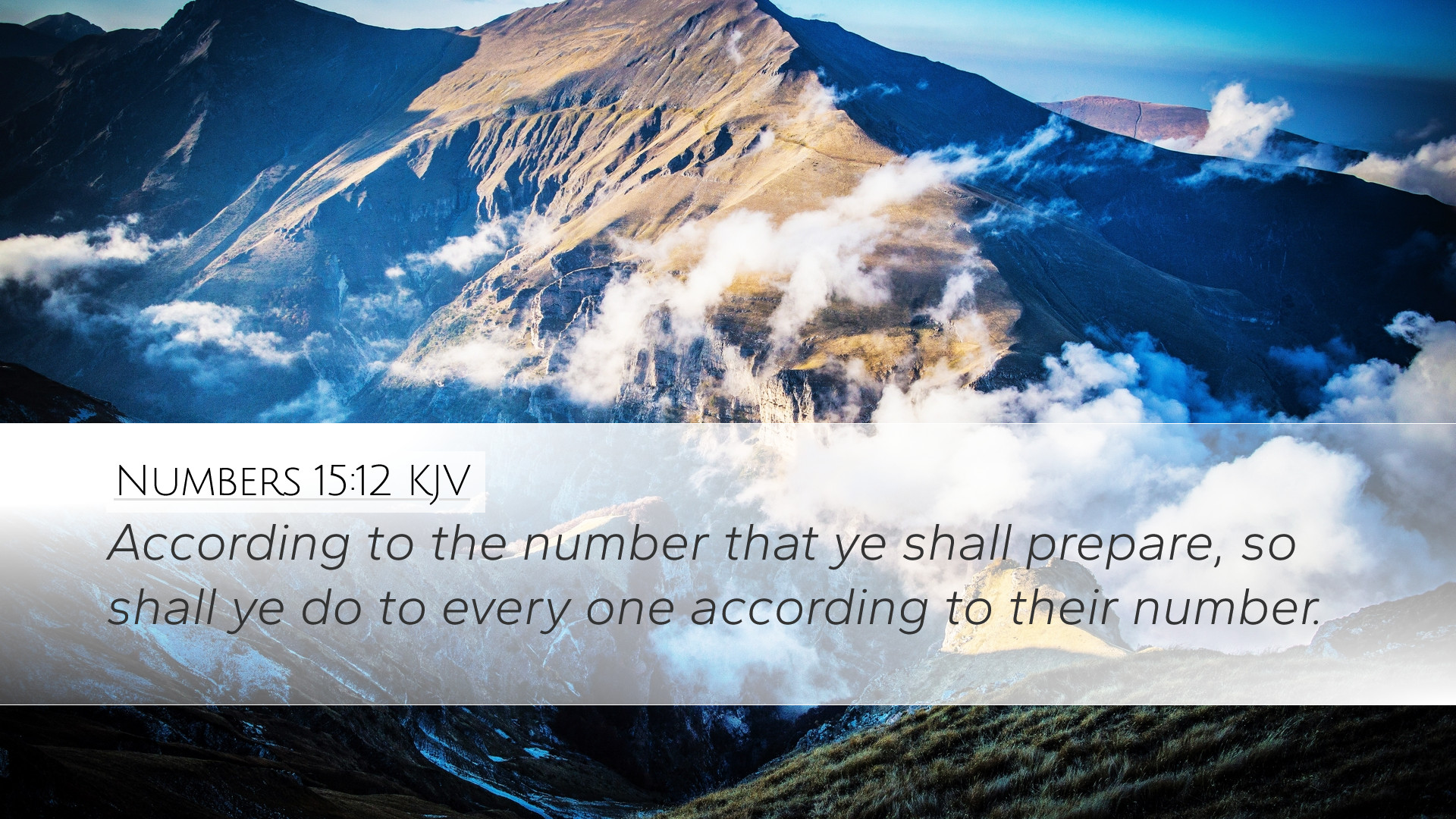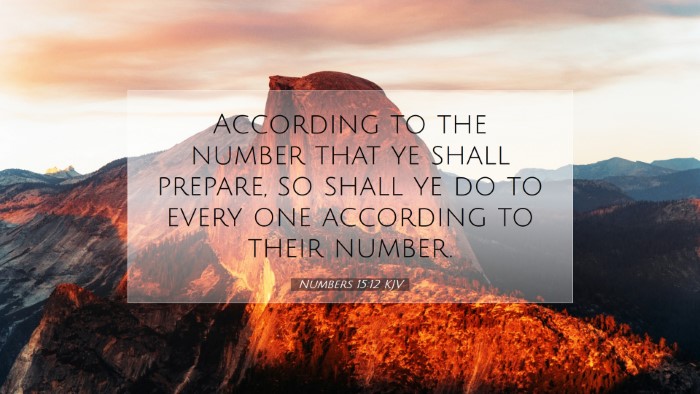Commentary on Numbers 15:12
Verse: Numbers 15:12 - "According to the number that ye shall prepare, so shall ye do to every one according to their number."
Introduction
This verse is part of a broader passage dealing with the sacrificial system in Israel, emphasizing the importance of offerings and their proper administration. Understanding the context and the implications of this verse sheds light on God’s covenant relationship with His people, particularly regarding worship, obedience, and corporate responsibility.
Contextual Analysis
In analyzing Numbers 15:12, it is essential to recognize its placement within the Book of Numbers, which is a narrative recounting the wilderness journey of the Israelites post-Exodus. This book details various laws, census data, and instructions for worship that are vital to ensuring that the Israelites maintain their covenant with God.
This specific verse follows instructions on offerings, particularly concerning the drink and grain offerings that accompany burnt offerings and sacrifices. The necessity of specific measures and the stipulation for offerings to be proportional demonstrate the holistic nature of worship in ancient Israel.
Theological Insights
-
The Nature of God’s Commands:
We see in this verse the precision of God's commands. Matthew Henry highlights that God's instructions are not arbitrary but are built with dignity and deliberate purpose. He argues that every detail in worship signifies our reverence for God.
-
Corporate Responsibility:
Albert Barnes notes an essential principle of collective accountability in worship. The phrase “according to their number” indicates the communal aspect of offering, suggesting that each person’s contribution is significant to the community's standing before God.
-
Symbolism of Offerings:
Offerings, in the Old Testament context, represented both gratitude and atonement. Adam Clarke emphasizes that offerings are not merely rituals but are symbolic acts of expressing devotion and sealing the covenant relationship with God.
Interpretative Perspectives
The verse has been interpreted through various theological lenses, encompassing legal, ethical, and pastoral approaches.
-
Legal Perspective:
From a legal standpoint, Numbers 15:12 can be seen as a reinforcement of the Law given to Israel. The detailed prescriptions underscore the orderliness and seriousness with which the Israelites are called to approach their worship.
-
Ethical Perspective:
Henry suggests that the specificity in offerings speaks to the ethical responsibility of individuals to honor God in their giving, thus promoting a God-centered community where contributions are made thoughtfully and willingly.
-
Pastoral Perspective:
For contemporary pastors, this passage provides a lens for understanding the importance of structure in church governance and offering practices. It encourages teaching congregants about the significance of their contributions to the church body.
Application for Today
This verse, while directly related to ancient Israel's sacrificial system, holds profound implications for modern believers.
-
Worship and Stewardship:
In today’s context, believers are called to be good stewards of the resources God has provided. The precision of the offerings in Numbers 15:12 teaches Christians to be intentional in their giving and service to God’s work.
-
Community and Responsiveness:
The communal responsibility evident in this verse reinforces the idea that every member’s participation is crucial to the health of the church. It encourages active involvement and contribution to ensure collective accountability in worship.
-
God’s Desire for Orderliness in Worship:
The structure outlined in Numbers 15:12 can inform how churches organize their worship and serve their communities, always aiming for reverence and a focus on divine command.
Conclusion
Numbers 15:12 invites profound reflection on how individuals and communities undertake worship in the light of God’s expectations. The insights garnered from public domain commentaries help us appreciate the seriousness with which God’s people should approach their offerings, not only to fulfill the letter but also to capture the spirit of reverence, gratitude, and community before the Almighty. As we apply these insights, we are reminded that our worship and contributions bear significance in maintaining the covenant relationship established by God with His people.


